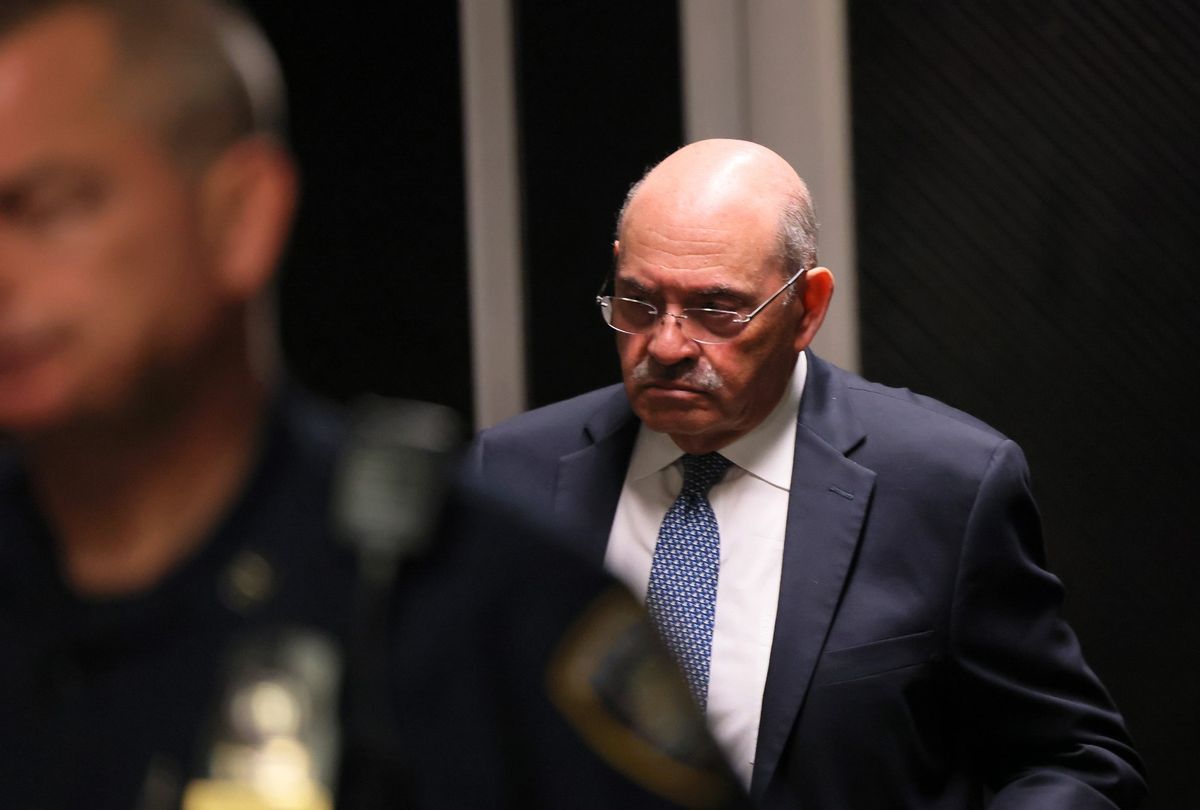Judge Arthur Engoron, who is overseeing Donald Trump’s New York civil fraud case, has questioned whether a key witness, former Trump Organization CFO Allen Weisselberg, committed perjury during his testimony at the former president’s trial, The New York Times reported.
Engoron sent an email to Trump’s lawyers on Monday asking them to provide more information about a possible perjury deal that Weisselberg may be negotiating with the office of the Manhattan District Attorney Alvin Bragg.
The judge cited a recent Times article which reported on Weisselberg's alleged talks with prosecutors about a potential guilty plea to perjury charges. Engoron asked the former president's lawyers to submit letters “detailing to me anything you know about this that would not violate any of your professional ethics or obligations.”
“I do not want to ignore anything in a case of this magnitude,” Engoron said, suggesting that he might use the plea negotiations as grounds for excluding Weisselberg's testimony entirely.
Bragg's office is not directly handling the fraud case, which was brought by New York Attorney General Letitia James, but is overseeing a different hush-money case involving Trump and the adult-film actress Stormy Daniels. But as Manhattan prosecutor, Bragg would oversee perjury charges relating to the fraud trial.
Earlier this month, the Times reported that Bragg’s office had initiated negotiations on a deal under which Weisselberg would admit to lying under oath during that trial. Trump's CFO could be facing additional time in prison after his earlier guilty plea on unrelated charges, according to Bennett Gershman, a former New York prosecutor and law professor at Pace University. If Weisselberg now agrees to tell the whole truth about Trump’s “fraudulent financial behavior,” Gershman said, that could “further incriminate” Trump and his family in connection with the charges brought by James in the civil fraud trial.
“It is entirely possible that new information that Weisselberg discloses about Trump’s conduct could heavily impact Judge Engoron’s decision on the appropriate remedy," Gershman said, which might be "to dissolve Trump’s businesses entirely" or to bar him from conducting further business in New York state, as well as imposing a severe financial penalty.
We need your help to stay independent
In the civil fraud case, James has accused Trump, along with his two eldest sons, the Trump Organization as a whole and two company officials of inflating valuations on financial statements for personal gain. She has asked that Engoron order the Trump businesses to pay a $370 million penalty and block Trump and his family from doing business in the state.
Weisselberg is a key figure in both of Trump’s New York cases, as the one person outside the family who has been closely connected to Trump’s finances for decades, The Guardian reported. He abruptly concluded his testimony in October, after a Forbes report suggested that he had lied under oath about his involvement in valuing Trump’s penthouse apartment.
On the witness stand, Weisselberg claimed to have minimal knowledge of how Trump’s penthouse at Trump Tower came to be valued at $200 million on his financial statements, based on figures indicating it was three times its actual size.
“I never even thought about the apartment. It was de minimus, in my mind,” Weisselberg said. “It was not something that was that important to me when looking at a $6 billion, $5 billion net worth.”
Engoron has no direct way to punish Weisselberg for his alleged perjury, beyond referring the matter to the district attorney for prosecution. But he may choose “incorporate” his findings into his decision on the merits of Trump's case, given the potential impact of Weisselberg's false statements on the outcome, said Syracuse University law professor Gregory Germain,
“Judge Engoron could also use the false testimony as evidence to support his conclusion that the Trump Organization is an uncontrollable fraudulent enterprise that must be put out of business,” Germain told Salon.
Effectively, all the judge must do is rule that Weisselberg's testimony was not believable, Germain added. Furthermore, if Engoron can cite “conflicting evidence,” his "credibility determinations will be binding" on an appellate court.
Want a daily wrap-up of all the news and commentary Salon has to offer? Subscribe to our morning newsletter, Crash Course.
Weisselberg pleaded guilty to an unrelated tax fraud case in 2022 and served about 100 days in New York's notorious Rikers Island jail complex. It's unclear whether any potential perjury deal would involve further incarceration.
Engoron noted that although the Times article focused on the valuation of Trump's penthouse, Weisselberg's testimony on "other topics" could also come under scrutiny.
If Engoron decides to discount Weisselberg's testimony entirely, Gershman said, that “could dramatically alter [his] analysis and decision, and cause him to impose the most draconian remedy of all: dissolution of all of Trump’s properties, order that he no longer can do business in New York State, and impose a massive financial penalty."
In his email, Engoron asked lawyers for Trump and James to respond to him by 5 p.m. Wednesday. His ruling is expected within days.



Shares